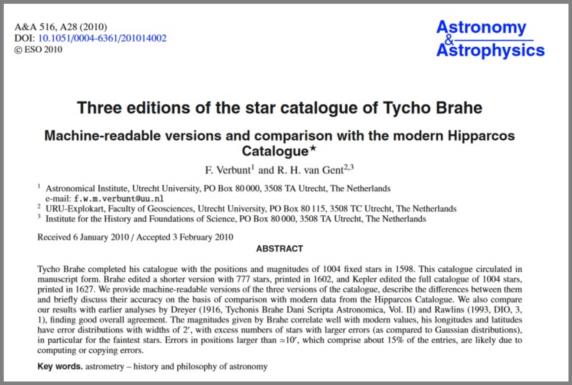
NavList:
A Community Devoted to the Preservation and Practice of Celestial Navigation and Other Methods of Traditional Wayfinding
From: Frank Reed
Date: 2024 Jan 30, 20:41 -0800
Rob van Gent, you wrote:
"Your claim that “Astronomical 'epochs' have preferentially used the zero year as the start of each century for... well, for centuries!” is correct for the last two or three centuries"
Just so there's no confusion for others following along, what I described was the last three "century rollovers": 1800, 1900, 2000. The standard astronomical epoch years were those "zero" dates and not the "plus one" dates. And I should add that I am not throwing these down like a folder full of papers tossed on a table [as if in some movie scene :) ] to prove a "fact". As I've noted in other instances, the year to call the beginning of the new century was actually debated in 1900 and 1901. Apparently in the USA (and the rest of the English-speaking world?) most public celebrations of the new century waited until 1 Jan 1901. In other countries, the big party for the new century was a year earlier. I do, however, contend that this dispels a modern claim or "pose", often-repeated by astronomy fans, that there is a logical, mathematical, and "correct" answer to the question --and that the "correct" answer is the '01 year. That ain't so, and the habit that astronomers had of setting their epoch dates to 1800.0, 1900.0, and most recently 2000.0 is an entertaining counter-example to the claim. :)
You wrote (and expanded significantly on this):
"...but this is certainly not true for most of the 17th century."
Thank you for bringing that up. That's fascinating. So if we turn the clock back to those earliest, pre-telescopic years of the scientific era, they certainly employed the "plus one" system, thinking of the new century as starting on the first day of the '01 year. I should add for others reading along, that Rob van Gent has serious expertise in this topic of Tycho and Kepler's star catalogues from this era, c.1601. If you like star catalogues and this sort of astronomical history, you might enjoy the article, many years old now, by Verbunt and van Gent (one of a series) here:
https://www.aanda.org/articles/aa/pdf/2010/08/aa14002-10.pdf
This is a direct link to the article pdf, and I'm also including a screen cap from the article summary below. It's great stuff, and even if the early sections are over your head (NavList readers), skip to the later pages to see the star charts comparing, for example, the coordinates of Tycho's "Big Dipper" with modern star coordinates.
These historical catalogs of star coordinates, incidentally, do have considerable relevance to celestial navigation, and especially to lunars. Without accurate stellar coordinates the stars could never have been used for navigation. One of the primary tasks assigned to the first Royal Astronomer at Greenwich, John Flamsteed, by King Charles II was to create a new catalog of the stars by telescopic observations. With accurate star coordinates, the primary early use of the stars in navigation was as reference marks for lunars. It would do no good to measure the angle from the Moon's limb to Aldebaran or Spica, for example, with an accuracy of +/-15 seconds of arc if the coordinates of the star were only known to +/-60 seconds of arc (one minute of arc). Celestial navigation was highly dependent on the work of the astronomers in their observatories from the beginning.
Rob, why do you suppose the astronomical tradition switched on this "zero" versus "plus one" definition of the origin point of a century before 1800? My guess is that it was nothing explicit... maybe just a reflection of "Enlightenment" attitudes and the de-religious "style" that attended the French Revolution and its aftermath. I doubt there was any significant discussion of the matter, though there must have been a few letters exchanged, here and there.
Frank Reed
Clockwork Mapping / ReedNavigation.com
Conanicut Island USA







